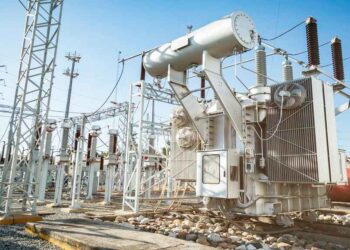In a recent development, all EU nations except Hungary have gone on to sign a joint declaration in order to protect Europe’s wind industry from the unfair trade practices that happen to come from Chinese manufacturers.
The CEO of lobby group WindEurope, Giles Dickson, went on to state that this day is indeed a huge one for Europe’s wind energy industry. 26 countries have gone on to commit to executing the actions set out across the EU’s excellent Wind Power Package after the declaration was signed.
Apparently, European wind turbine manufacturers are not in a great place. Notably, Siemens Energy almost went bust earlier in 2023, with other big players also frequently posting losses.
Chinese manufacturers, in contrast, happen to be getting stronger every year and look all set to dominate the world market. And even though there is no Chinese wind turbine that has been installed on European soil, fear of this hurdle being jumped is sparking protectionist instincts among the EU member states.
The charter reads that while the wind power sector happens to be historically a EU success story, it goes on to face a set of challenges, and the whole European wind ecosystem must come together so as to address these challenges.
This two-page document is about the wind power package put forward in October this year by the European Commission.
The fact is that the 26 signatories commit to making sure of a sufficient, robust, and predictable pipeline for the deployment of wind energy, thereby covering the period of 2024-2026.
Apart from that, the idea is to promote the manufacturing of high-quality wind turbines including high environmental, cybersecurity, innovation, and labor standards by making edits to the national auction systems for wind power capacity. It is well to be noted that traditionally, wind power developers bid on specific lots of power supply contracts and also compete on the price of electricity they can offer, with the one that is cheapest winning the bid.
Moreover, these auctions tend to favor developers who take up cheaper China-made turbines, a move that has gone on to prompt insistent lobbying across the wind industry to change the system.
The EU’s tool of choice now happens to be well-designed, transparent, objective, non-discriminatory, non-price pre-qualification, or award criteria that favor European bidders, according to the charter.
These will go on to target sustainability and resilience, business conduct, cybersecurity, and the ability to deliver. Notably, citizen participation can also be taken into account, according to the document.
Notably, the cybersecurity requirements may go on to hamper Chinese manufacturers from earning EU bids, given that wind turbines happen to be most often connected to the web while at the same time being equipped with hundreds of sensors as well as cameras, often calculating movement in the air around them along with the wind speeds.
This goes on to reflect measures that happen to be adopted in the telecoms sector, in which Chinese firm Huawei happens to be currently being locked out of bids so as to construct European networks. The same logic can now apply to Chinese manufacturers concerning energy infrastructure.
Apart from this, European manufacturers have also gone on to bar the Chinese competitors from going on to become members of their main lobbying body, WindEurope. Members should have prominent wind-related operations that happen to be based in Europe, as per the association’s core values, updated in early 2023.
Moreover, instruments so as to safeguard the European industry happen to be included in the charter.The countries go on to endorse a commitment to actively tracking, and if they are justified, one may consider measures to address probable unfair trade practices across the international market related to wind products.
Trade officials across the European Commission are already looking at foreign countries’ subsidy practices with some suspicion.
Finally, the signatories go on to say that they want to boost domestic manufacturing.
The charter goes on to commit signatories to scale up the wind equipment manufacturing capacity across the EU so as to meet the anticipated increased demand concerning wind projects, while at the same time committing to reinforcing existing employment as well as industrial capabilities, as required.
Sven Giegold, Germany’s high-ranking public official who signed on his country’s behalf, said that the EU energy ministers, along with the wind industry, are indeed sending out a very crucial signal today that manufacturing capacities must match the ambitious targets.





































